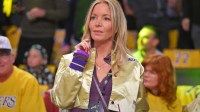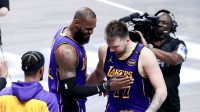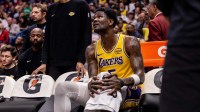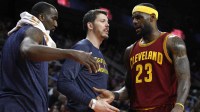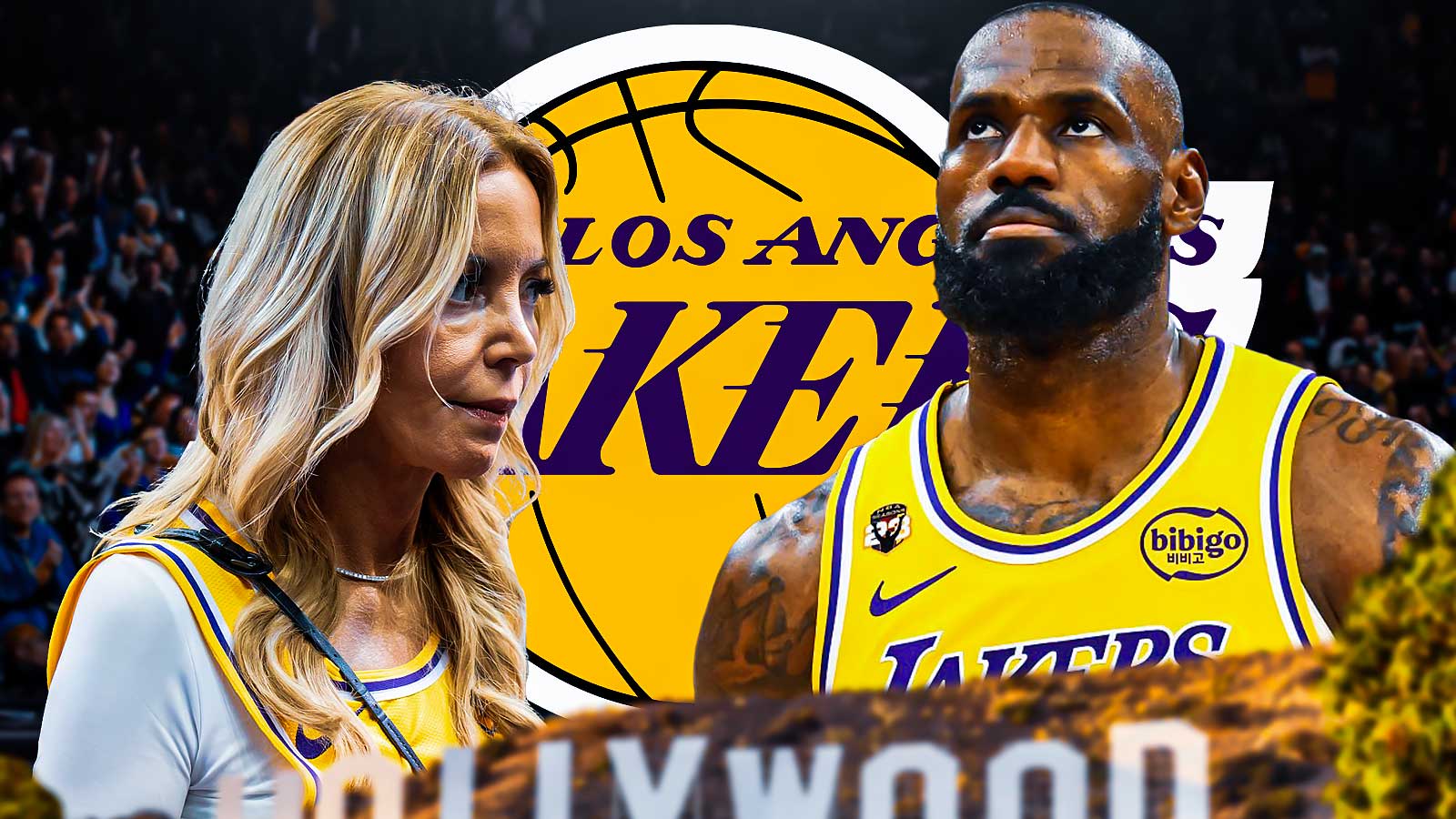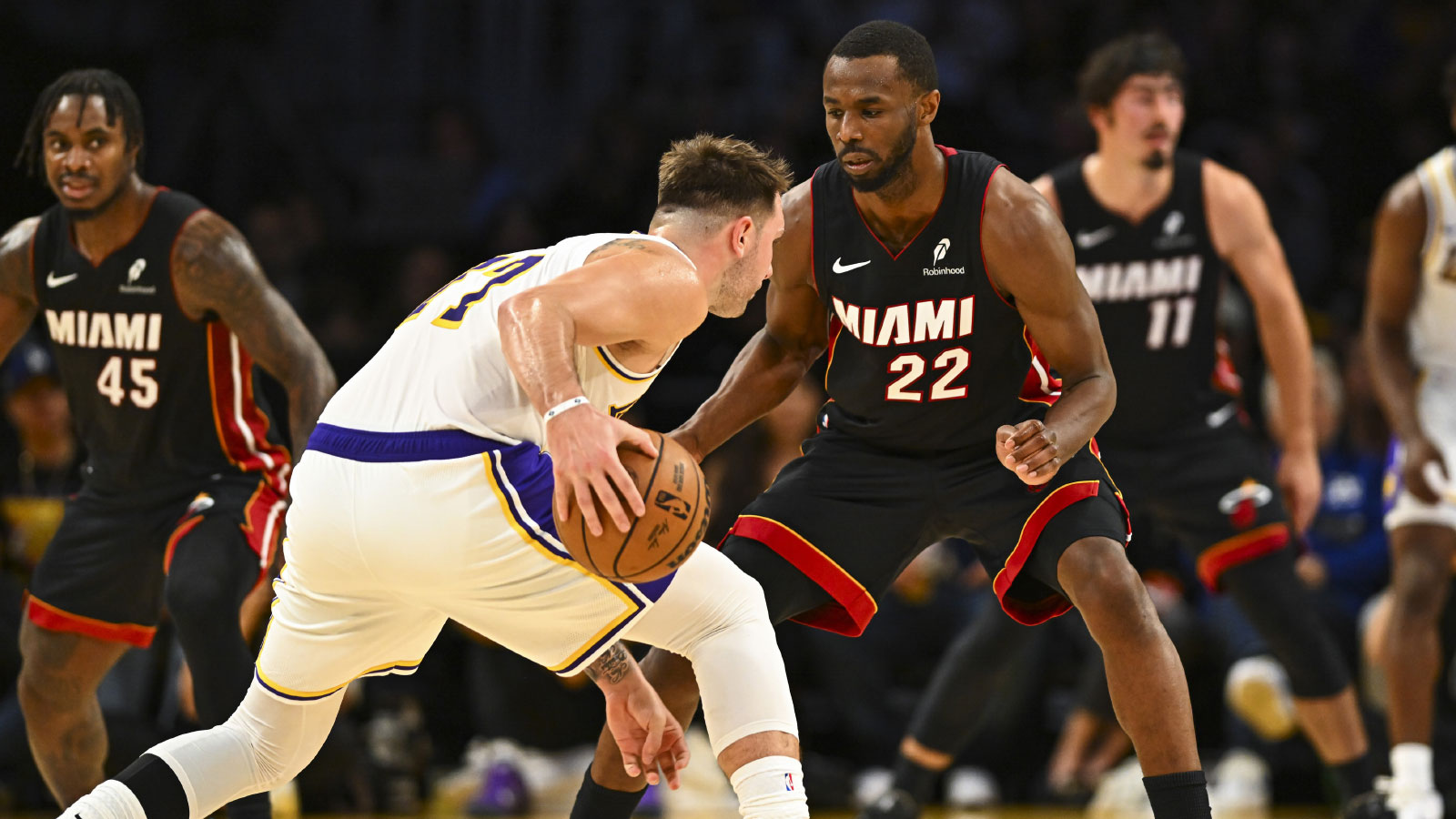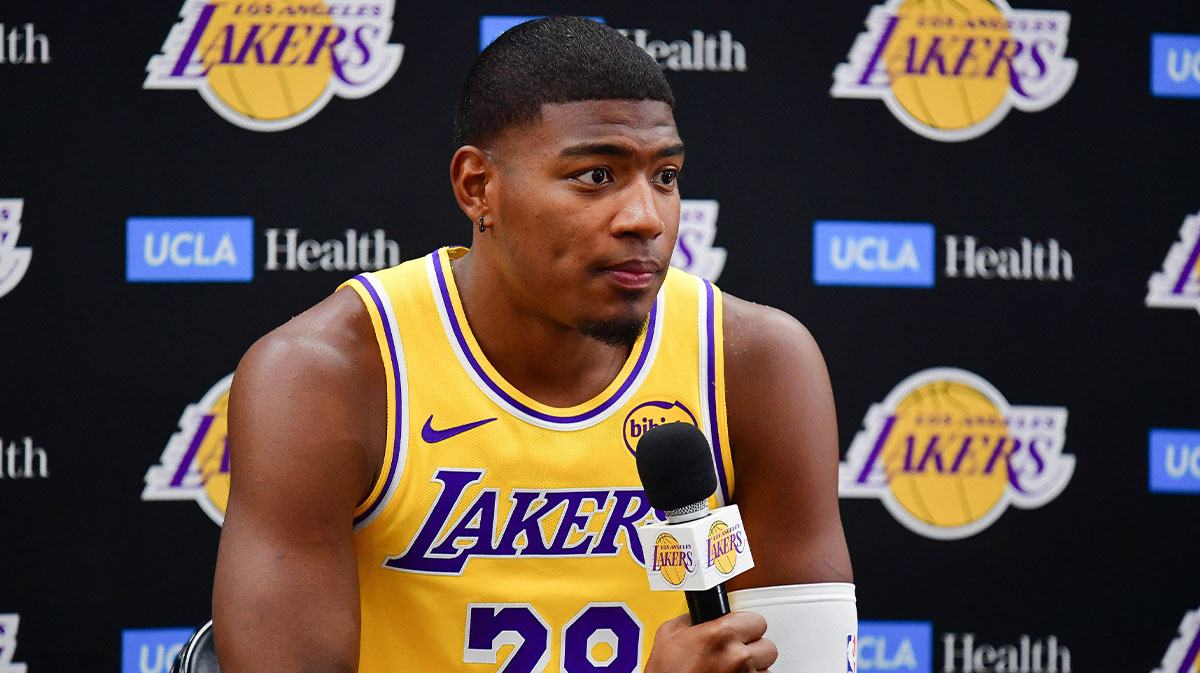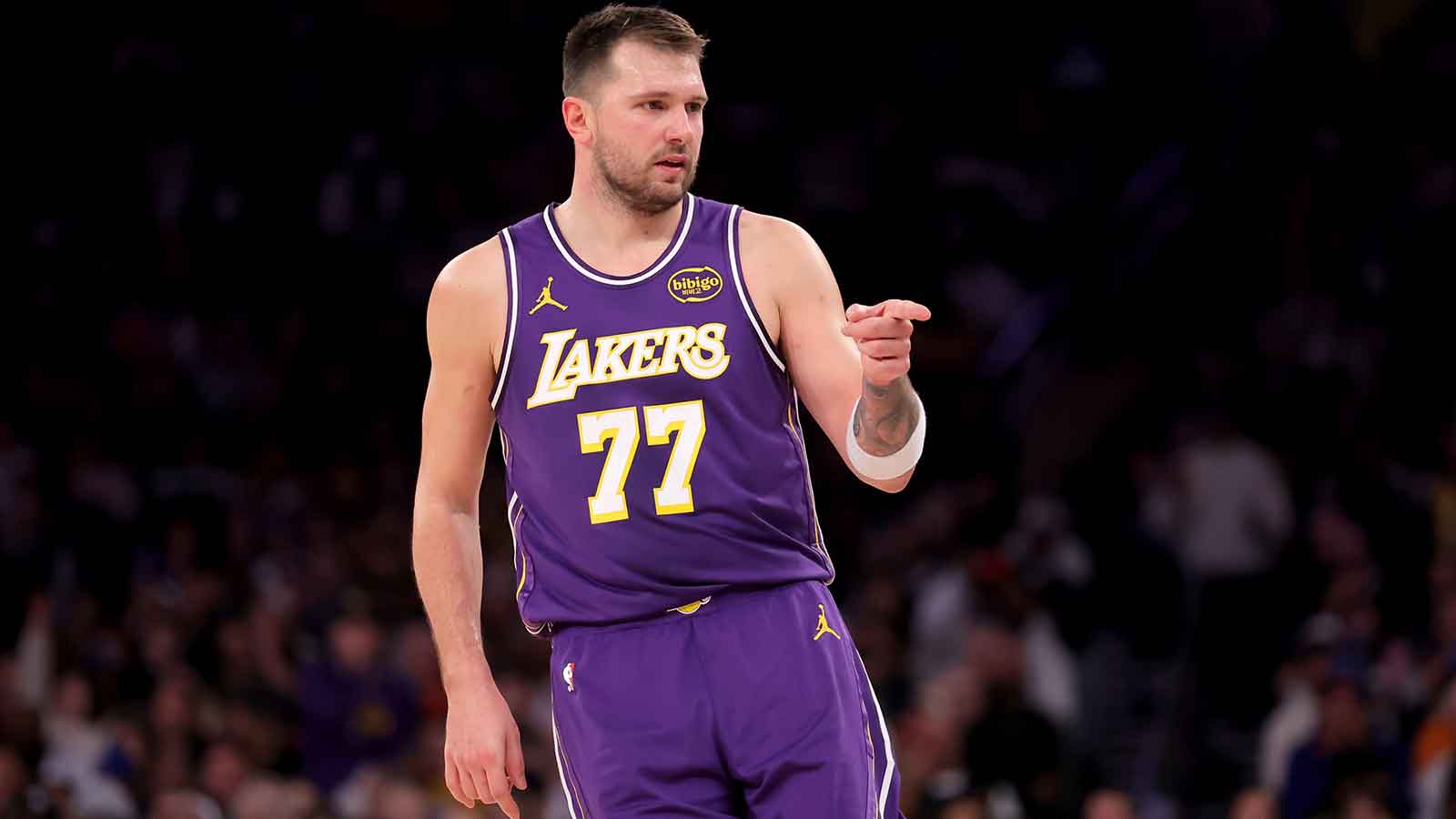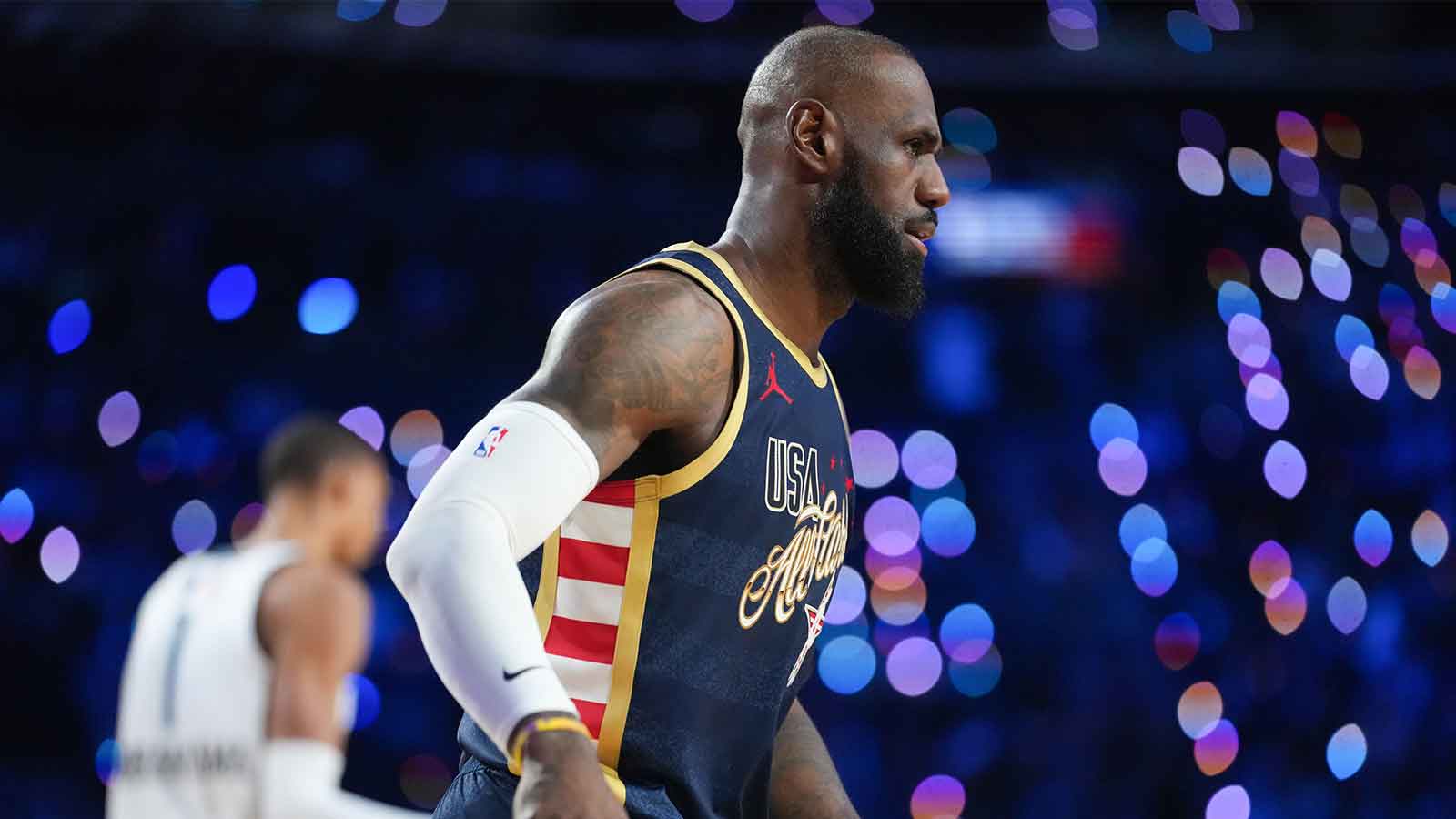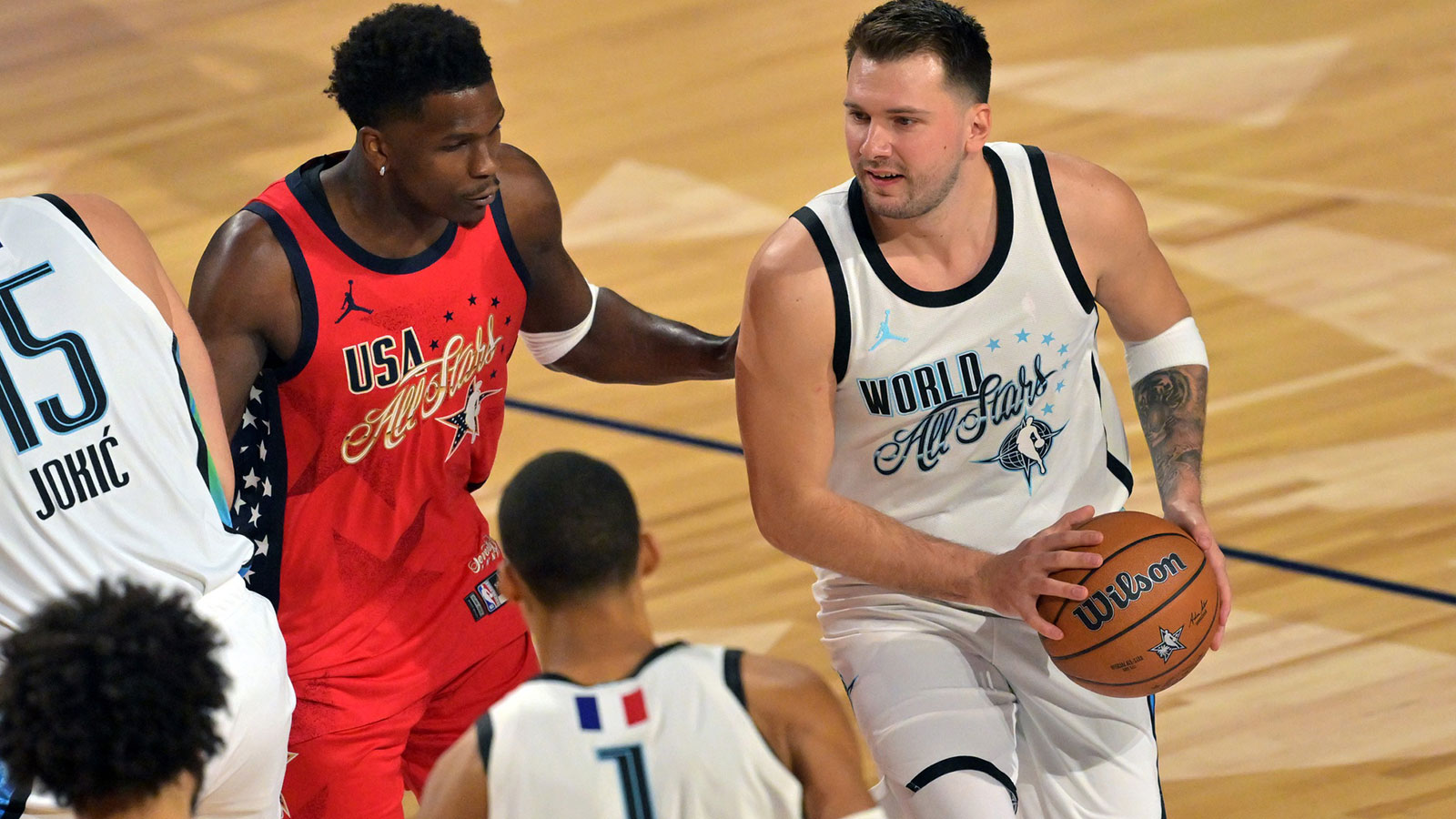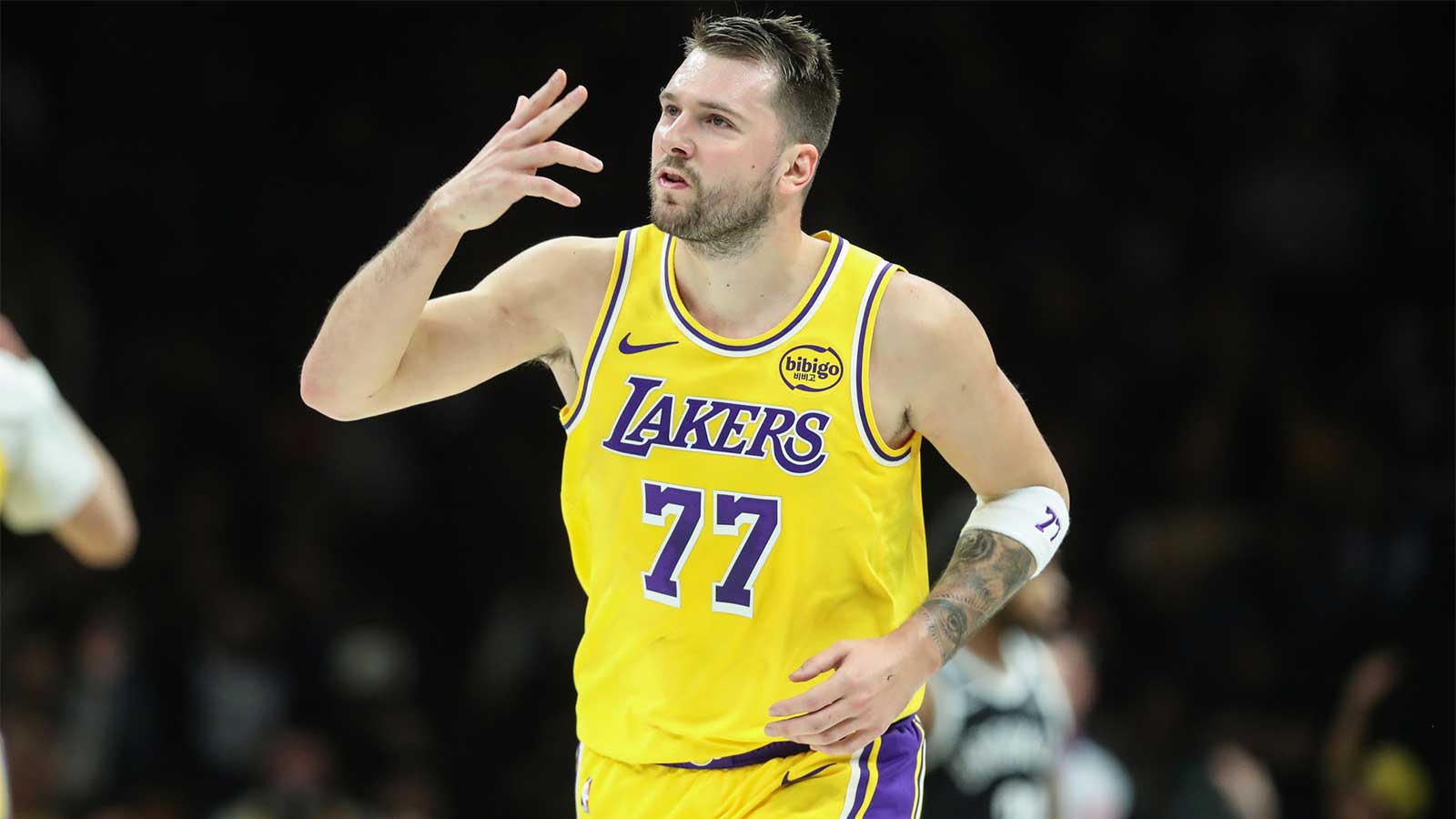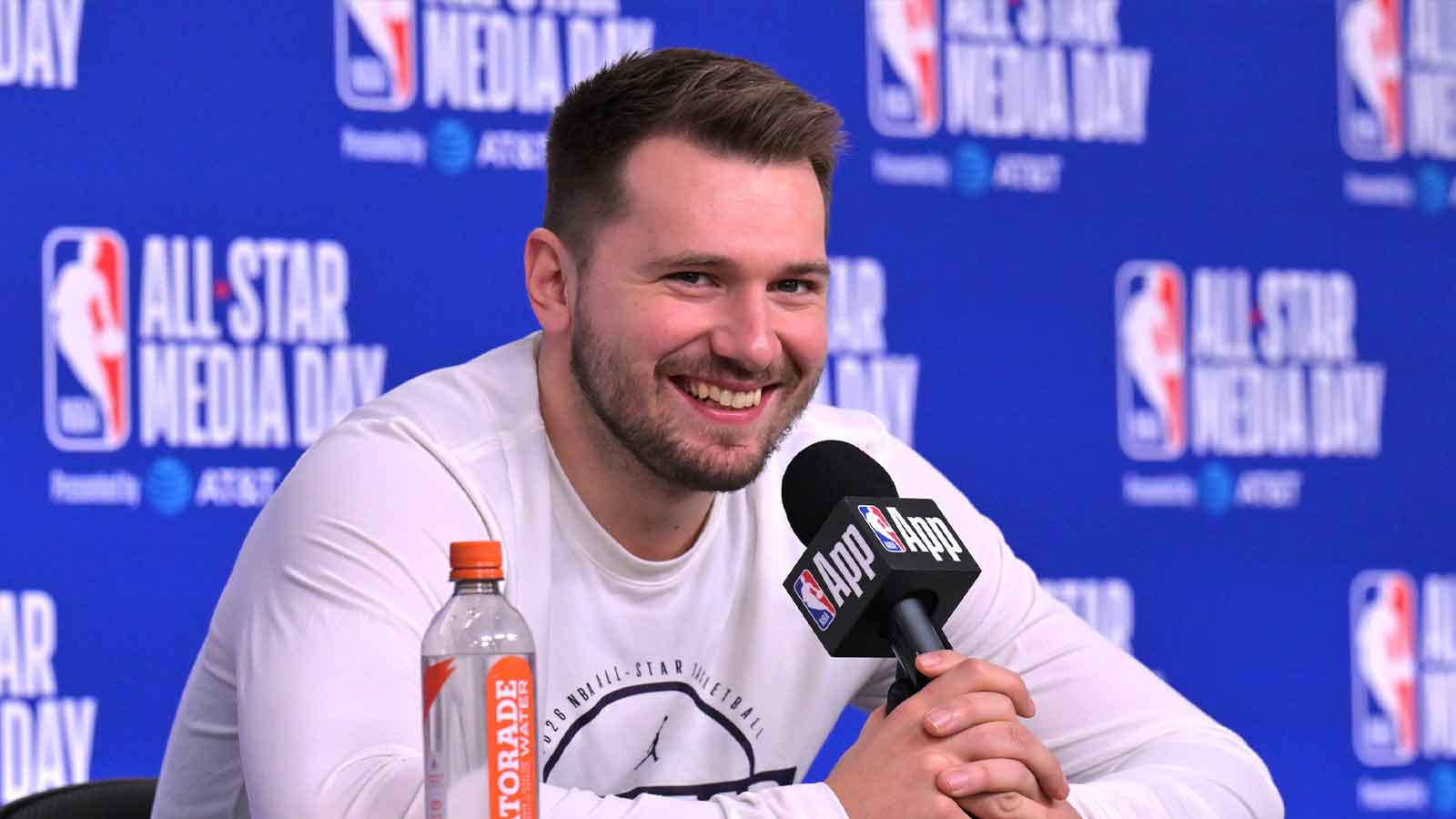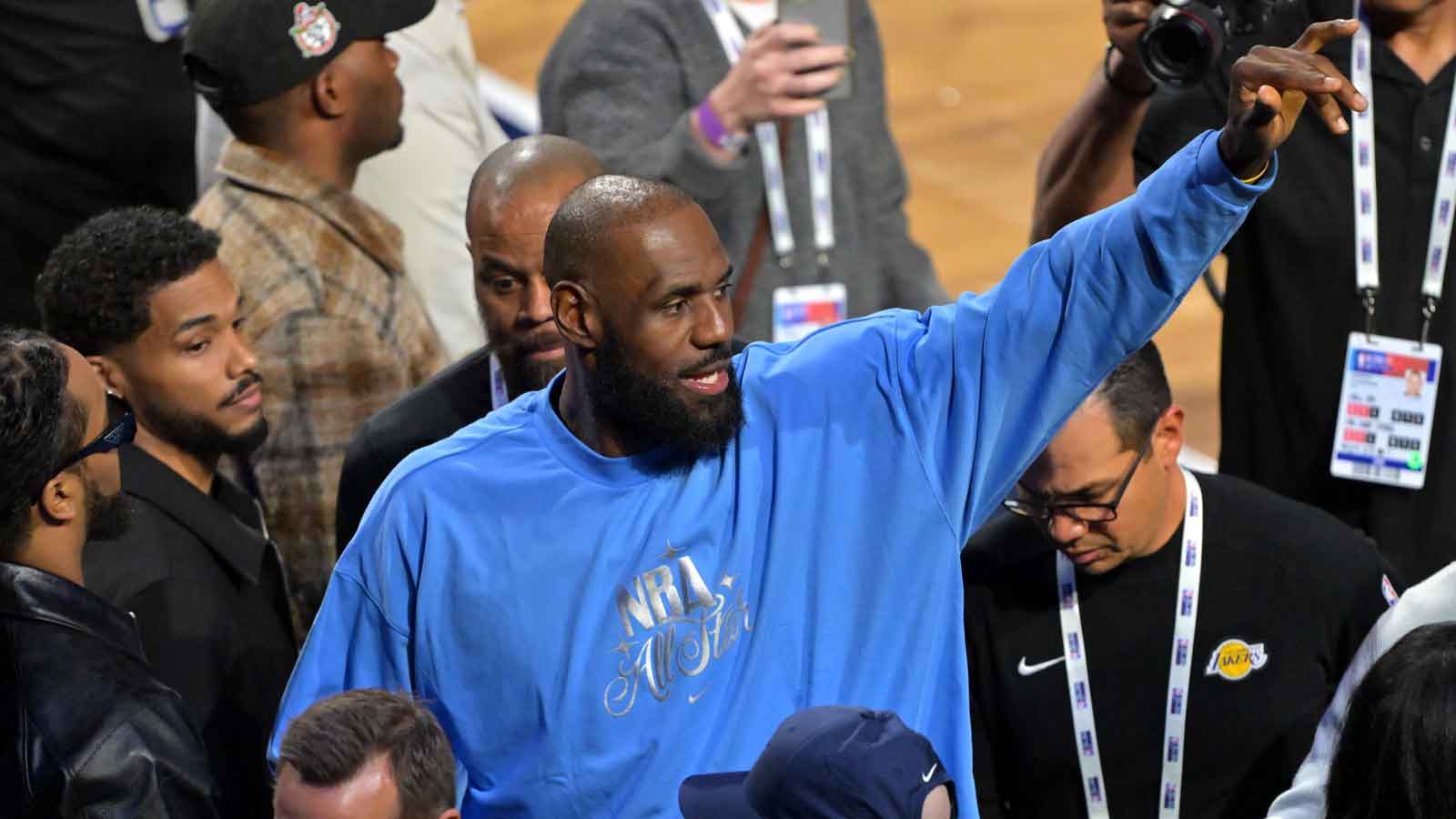ClutchPoints' Lakers reporter Michael Corvo recently spoke with Austin Reaves' older brother, Spencer, about Austin's basketball journey, his experience with the Lakers and Team USA, LeBron James' generosity, golf, and more.
Here's that conversation (edited and condensed for clarity).
CP: You look more like Austin than I realized. It's the hair, I guess.
SR: Yeah, we've gotten to where we look more like each other because he started growing his hair out a little bit.
CP: A funny thing about Austin, I feel like he's constantly flipping away his hair. It seems like it would annoy me.
SR: Yeah, literally once or twice a possession. He used to buzz, so we didn't really look alike. But I don't know why he has it so long. I don't understand why he doesn't just tell them to take a little bit more off the top.
Spencer is in preseason for SC Rasta Vechta, based in the small city of Wechta, Germany.
CP: Quite a contrast between you and Austin, with him being in L.A.
SR: Oh, for sure. I tell people all the time: Austin's like the furthest thing from Hollywood. He could care less. He loves L.A. probably because he's not the biggest thing in L.A. He just kind of fits in and flies under the radar — how he likes it.
CP: He's creeping up there, though. Those Lemon Daddy billboards.
SR: Yeah. I've had a couple people send me those and I'm like, “I don't know what that is.”
CP: I feel like that would be a good nickname for him.
SR: Another one?
CP: What was it like watching Austin represent Team USA and be one of the stars of the team?
SR: It was cool. He was kind of shocked that he even got a call. He randomly hit me up and was like, “Hey, I'm thinking about playing for Team USA this summer.” I'm like, “What?” He's like, “Yeah, they invited me to do it. Should I do it?” I'm like, “I think you have to.”
You might not ever get another opportunity to represent Team USA. You hear the hype surrounding the Dream Team and the Redeem Team and a chance to win a gold medal. Sadly, they weren't able to do it, but it was cool to see him play and represent Team USA because I know what FIBA basketball is like, with the different rules and stuff.
CP: I feel like he really thrived.
SR: Well, he can fit. He figures it out. His style is whatever the game needs, whatever the team needs from him, he's able to figure it out and just try to help the team win. And with his skill level, I think he fit in and was able to, with a lot of good players around him, just be able to do what he does and play basketball.
CP: It was cool to see his popularity in the Philippines. What do you think makes Austin such a popular figure, a sort of instant cult hero with the Lakers and around the world?
SR: With the Philippines, I think they're just huge Lakers fans over there. That's the way he described it, too. Like, he was the “Lakers Player.” He's able to reach a certain level of people because he's not crazy athletic. They maybe don't see themselves in his game but love the way he plays, the way he works, the way he does the little things. Always getting hit in the face or diving on loose balls and doing things that you don't always see in NBA regular season games, to be honest. People can just really appreciate somebody doing the things that not everybody wants to do and just playing smart and playing the right way.
CP: Have you noticed anything different in him personally since he ascended to basically being an NBA star, and now a very well-paid one?
SR: Really nothing. He's the same dude. He hasn't changed at all. He doesn't spend his money. As long as he can play some golf — I think he bought some new clubs and that's probably the biggest purchase he's made ever in his life. I don't think any amount of money in the world could change that man.”
CP: That's what Rob Pelinka said about him at exit interviews. Austin said the one thing he was going to purchase was a country club membership. So that hasn't happened yet?
SR: It hasn't. We have some decent perks around home where we can get in. He went and got fitted for some clubs and spent a good amount of money on some newer clubs that he can use for the next five, 10 years. It's not a new car. It's not a bunch of jewelry or anything.
CP: How does your golf game compare?
SR: If you do the handicap system, he's probably a little in front of me. But I can hold my own if we play a match play or a little fun game of threes that we play with one of our buddies.
CP: That's impressive. I know he's a scratch player.
SR: Yeah, I would say he's about scratch. And I'm probably a three-to-five depending on the day. The weather here is not going to stay this nice or as nice as it is in L.A., so I'm going to get it in while I can and hopefully next spring I'm not behind the eight-ball on this man getting to play 12 months a year.
CP: Speaking of playing Austin, when was the first time he beat you 1-on-1? I assume you were winning initially?
SR: Oh yeah, all the time. Bad. Bad. He was so small. He was just tiny. You could really bully him around. It was really competitive back then. It would get very serious. It's calmed down now. But I would say when he was probably in between his junior and senior year of high school is when he started getting a couple wins.
CP: His teammates have called him “cold” and a “killer”. Where does that competitiveness come from?
SR: Our parents, for sure. We grew up in volleyball gyms playing co-ed, softball fields playing tournaments, basketball leagues — older leagues our dad would play in. We were always around sports in general. Our parents are super-competitive. Anything they do now is still about winning. My mom likes to play Jeopardy! against me when I come home. She wants to win so, so bad. Our dad's really getting into golf. He's not going to beat us, but he wants to compete and play at a certain level. It was all about winning, whatever you did. They instilled that in us early.
CP: Did you always know Austin was ready for the big moments?
SR: You could tell he was a little different. He was our 5'10 starting point guard. 130 pounds as a freshman. And we would go play in bigger tournaments and he would have no trouble. He wasn't a killer. That wasn't what we did as a team and that's not what he was asked to do. But you could just see he was something different.
Austin didn't really blow up. When he got his offers, he didn't start even getting any looks until his junior year because he wasn't asked to do anything on our team. And he kind of learned how to be a role player. He knew what it took and what was asked of him to be a winning player. And throughout the years his role increased. It's kind of the same trajectory he's on with the Lakers.
CP: Was there a game in high school that stood out when you were like, “Oh, his ceiling is higher than I realized”?
SR: He was probably option three for us, but there was a couple games as a freshman. I remember this one game against one of our rivals – I don't know if they were the same division, but a rival that was really good. I think we both won the state championship that year — and he had like 27. And we were just like, “You?” I guess he just had a favorable matchup. But after I graduated they gave him the reins. And he hit a little growth spurt and then it was like, “Hey, you have to be the man. You have to be the guy.”
I remember a stretch he had when he was a senior. I think around a Christmas tournament. I had just finished practice. I'm going to the cafeteria. It's like 5:30 in the afternoon, and I see a tweet that's like, “Cedar Ridge and Forest City go to overtime.” I'm like, “I didn't even know they were playing.” And it says, “Reaves with 55.” And I'm like, “Huh?” I texted my parents like, “Yo, what is going on?” And they're like, “Uh…can't talk right now. Yeah, it's a tie game.”
I didn't even know. By the time it was over, I think he had 73 in triple-overtime. I think he shot 36 free throws. A guy on the other team had like 59. Austin was like, “No one was at the game. By the time it ended, the crowd was packed and they were just, I couldn't believe what was going on.” It was wild. He took like four threes total.
According to Spencer, the account that originally updated footage of the 73-point game had his YouTube account hacked, and the footage hasn't been recovered.
And then the next week he had a tournament at Arkansas State. Four days in a row. The first game, he had 30 in the first half and they blew them out. After that, it was like 57, 49, 56, with a game-winner. He beat the tournament record by 70 points. I think Arkansas State finally offered him after. And then right after that, he got his Wichita State offer and committed pretty soon after that.
Those are the craziest games I've ever seen in my life. People back home still talk about it. So that's kind of what validated it. People knew he could play, but thought he was too slow, too unathletic, too small. He was probably 6'5″ and 160 at the time. So they were like, “He can't play. He doesn't have enough muscle to play Division I. Literally he was thinking at a point he was going to come play with me at my Division II. I'm like, “Please don't.” We knew he was destined for something better than that.
CP: The Lakers moved Austin into a bigger playmaking role, which really helped the team take off. He can blend in with any lineup and do whatever the team needs, but he's also got this other playmaking, scoring side to his game. Are you a little surprised he can play that kind of role at this level?
SR: We could see something different, but I'd be lying if I said I thought I'd be watching him be the lead guard in the Western Conference Finals. That was beyond the level we thought he'd be at so quickly. It's really insane how quickly he's taken off. He has exceeded even my expectations. But whatever role he's ever been offered, he's been so good at fitting that role. He went from being the lead guard with the Lakers into coming off the bench for Team USA and was pretty good at doing it.
CP: Darvin Ham believes Austin will be an All-Star. Is that something you think Austin cares about?
SR: I think Austin wants to be the best player possible. I forget which podcast it was on, but they were like, “Yeah, 50% of dudes don't love basketball in the NBA.” And that's probably true.
Austin loves hoops and he loves competing. I think he thinks he can shine in whatever role he is given. So if he's going to be given a bigger role, I think he truly believes he can go do whatever with that role. If that means scoring 20 a game, I think he could do it. But I don't think being an All-Star is ever going to blind Austin. He would for sure rather win a championship than be an All-Star. However that affects a legacy or whatever, I don't think Austin cares about that at all.
CP: As much as he loves hoops, still seems like it's his second favorite sport.
SR: 82 games is a lot, and golf for him is just to get away from basketball, where you don't think about it 24/7. Because I really think that if you focus on that literally every second of the day, it could drive you crazy. It's not good to be satisfied, but you're never going to think that you've done is enough if that's all you think about every day. We were playing some rounds in between playoff games, in between Game 5 and Game 6 with the Warriors. He's like, “Yeah, people might not like it if they saw me out here, but I just enjoy getting away for a little while.” He'd go do his recovery, his shooting, and we'd go play a round. And he's like, “I feel like my mind's more free and I can go out the next day and be like, ‘Okay, it's time to handle a job.'”
CP: What's it been like to watch him on this journey?
SR: Man, it's crazy. When he was in college I used to stay up and watch games. I was kind of crazy into watching every game. Now it's a little bit more difficult with it being on the West Coast. But it's just been surreal to watch his progress of what him and his agents and our family decided to do the night before the draft. The Lakers were it. The agents were like, “We've seen what they do with guys like you. And we think, put you in that spot, you're going to turn into (what he's turned into).”
I think it's super cool. Last postseason was the first time I've gotten to see him play since he was in Wichita State. It's just crazy looking around and seeing all the celebrities, a packed house in the playoffs. It's a different atmosphere. Super proud of him. But at the same time, like my wife said — because she came to Game 6 against the Warriors — and she's just like, “It's still just Austin playing basketball.” And it's weird because everything else around it looks completely different. And the magnitude is completely different. But still, it's Austin playing basketball.
CP: It feels like you're not just proud but inspired by your little brother.
SR: Of course. I mean, you see that and you're just like, “Man, that's awesome.” And people are like, “Oh, when are you going to play in the NBA?” I'm like, “I don't know if I'm built for the NBA. I'm a realist.” They'd be like, “Are you jealous of Austin?” I'm like, “No. I'll still whoop his ass in a game of 1-on-1.” Just super proud of him. People telling him he couldn't play Division 1. Then it was, “Oh, he's not good enough to play in the NBA.” He just signed a big contract after two years because he was put in the right situation and showed people that they're wrong.
CP: Were you like me and thought the half-court shot was going in?
SR: I was right in line with it. Knowing how hard that is to do, I was like, “I don't believe it,” then, “Oh, that might.” Then it goes in and everybody's freaking out.
AUSTIN REAVES FROM HALFCOURT AT THE BUZZER 😱
WHAT A SHOT. LAKERS LEAD ON ESPN. pic.twitter.com/8ES5Kfv3cO
— NBA (@NBA) May 13, 2023
We had some cool moments during that game. He knew where we were sitting. I think something happened and he came down the court and he was like, “Did I travel?” I was like, “I don't know. Just shoot the ball. It doesn't matter. You were open. Shoot.” He was like, “But did I?” Kind of crazy that he's playing in the Western Conference Semis, but he's still yelling at me in the crowd and I can yell back at him.
CP: My prediction for this year is that he's going to have one big dunk.
SR: He might. He's sneaky. If he gets it in the right spot. Now, he's not going to go catch a shot-blocker standing right under the rim. He's going to have to get somebody by surprise. If they're late to a closeout or don't really expect him, then they kind of go vertical. If someone does that, he could catch somebody.
CP: Are there any LeBron anecdotes he's shared with you that you can share?
SR: I think he said it. He's just like, “You expect Bron to be like this figure, and he is. Wherever he goes, it's an aura around him. But he's like a big-a** kid.” He has fun like most guys on a basketball team do. You get all the guys around, you start acting a little childish sometimes and jokes and laughing. But he also said, “We don't practice a lot. But Bron is in the building taking care of his body.” He's the first one in and the last to leave. It's always something. It's treatments. It's cold tubs, it's his sleep. Austin said, “That's so professional of a guy of that stature to just still be so bought in at that age.” And it gives a good light on guys that are coming up and want to have a good career.
But he just said how professional he is. Austin can't quit talking about how smart he is as a player. He didn't really understand it before he got on the Lakers how his basketball IQ is through the roof. What he sees, and how he's able to literally execute almost anything on a basketball court. Austin's really said nothing but high praise about that man
CP: Are there any relationships within the Lakers organization that have been particularly meaningful to Austin?
SR: He said a million times that Rondo was the man for him. You could see from the World Cup: him and Dennis really got along. I guess people see it now, but didn't understand how close him and Dennis were. Austin's super close with his kids. He'll crack jokes with his son, stuff like that. Austin is not always the most outgoing guy, but if you're in Austin's little tight circle, you're in and you're a big piece of that. And it kind of overflows on Dennis's family as well, which is really cool.
"Shoutout to my boy Dennis Schroder. Obviously pissed that y'all beat us [in the FIBA World Cup]… It's the second best option."
-Austin Reaves 😅
(via hillbillybogey/TT) pic.twitter.com/8TkCFhOEwc
— ClutchPoints (@ClutchPoints) September 19, 2023
I've asked him, “Is there anybody (with the Lakers) you don't get along with?” He's like, “No. They've done an incredible job. I really like all of my teammates that I've had.”
CP: Is there anything Lakers fans don't know about him off the court?
SR: What you see is what you get. I'm actually surprised that Austin has done so well when it comes to media and stuff. He used to hate it. And he's gotten to where he does really well with answering questions and having a little bit of a personality up there. He acts a little cold-hearted sometimes, but he's a good dude. He understands that people have jobs to do and that he's in a blessed situation as an NBA player.
That's one in millions of an opportunity that people actually get to do. So, he stays pretty levelheaded and gives time to people that deserve time and it's never going to big-time anybody. He doesn't do that when we're back home and people bother him at a restaurant. He doesn't love it, but he's also not going to ever be an a** about it. It's just golf, it's just family, it's just playing basketball and it's that simple. And it can be in whatever order. It's going to be hanging out, having a good time. But at the end of the day, especially during the season, going to get your job done and then coming home and chilling.
CP: Finally, what do you think of the Ice Creams?
SR: Oh, I like them. I have a pair. I was joking with Austin last year, like, “Hey, I heard the Brons are really nice. Can you have Bron send me some?” And he was like, “I got you. I got you, I got you.”
Summer came around, never got any Brons. I'm like, “Yo, Austin.” Finally, I bought some and I took a photo and was like, “Here. Thank you for my Brons. Just kidding. I bought these myself.” And he was like, “I'll text him right now.” Four days later, five pairs of Brons showed up at my home in Arkansas.



